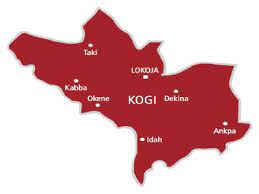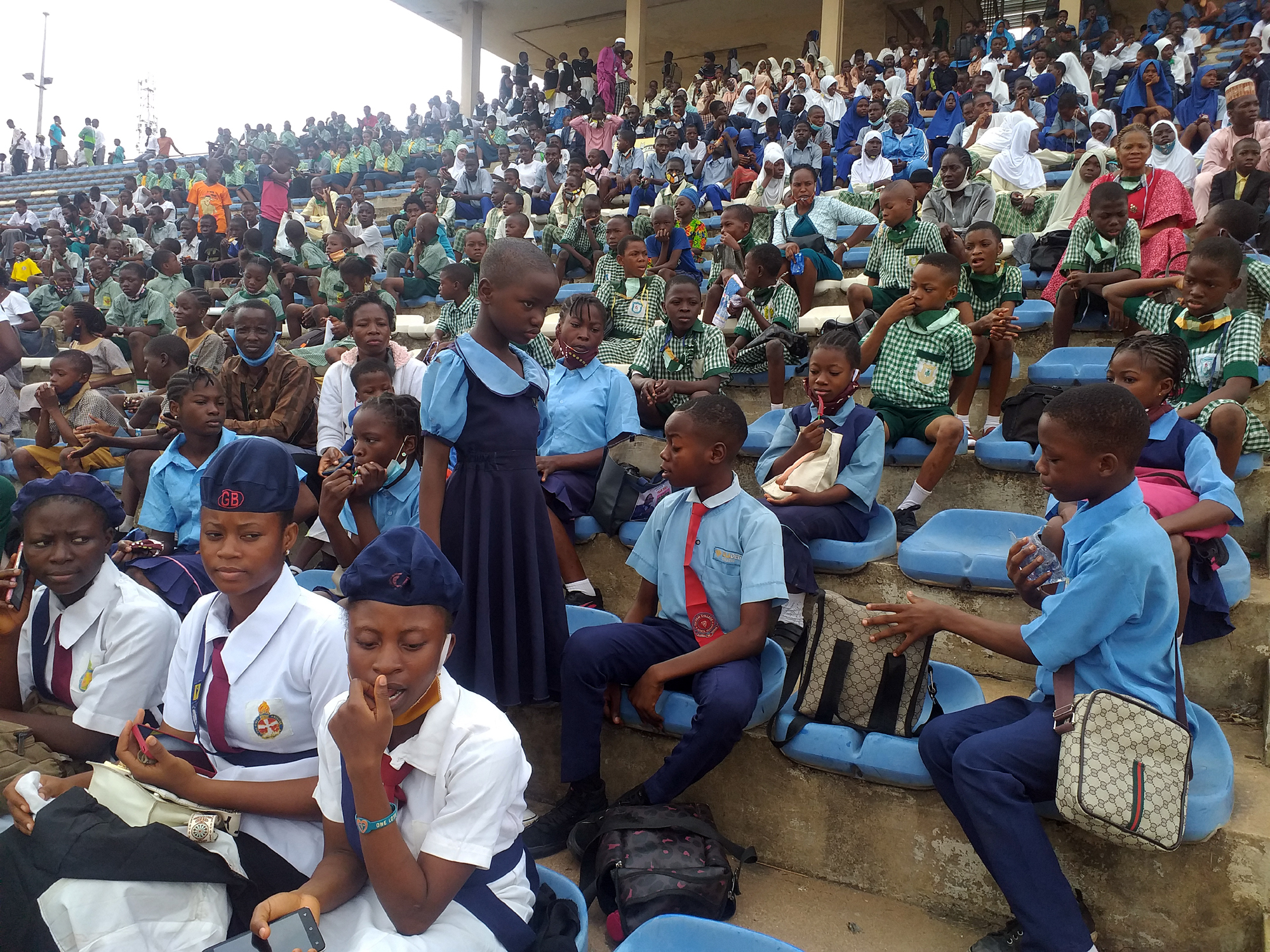Health
Foundation Promises Full Scholarship to 1,000 Vulnerable Children in Kogi
The President, Enemona Humanitarian Foundation, Amb. Enemona Gabriel Onoja, yesterday said plans have been concluded to give full scholarships to over 1,000 vulnerable children in communities in Kogi.
Onoja disclosed this at the Maiden Igala National Youth Summit, celebrated with the theme, “The Role of the Youth in Kogi East Development Agenda”, and held in Lagos.
He said the scholarships would be offered to pupils, who will be fed at least once a week to provide nutrient for their mental development, in communities in Inele Ugoh, Olamaboro Local Government Area of Kogi.
According to Onoja, by September this year, over 1,000 children in Inele Ugoh, will be given full scholarships to study in primary and secondary schools.
“We will enroll and give them free books, uniforms, sandals, games and compound wears and possibly a school bus.
“We shall recruit teachers in relevant subject areas who will be paid and motivated by the foundation them to enable them stay. We intend to feed the children at the nursery section at least once a week,” he said.
Onoja also said that as part of effort to rid the zone of criminal elements, the foundation had organised youths into cooperatives for artisenal mining on numerous sites that abound across the state.
He added that the cooperatives had empowered no fewer than 300 youth groups who are now making decent living that has kept them off criminality.
He advised the youths to be ready to demand accountability from those serving now and make sure that good politicians emerge in 2023 by mobilizing votes and ensuring that their votes are counted.
“We must also champion the fight against cultism, thuggery, political killings, election malpractices, imposition of bad and failed leaders, destruction of community property and every index that makes us under-developed,” he added.
Onoja, a guest of honour at the summit, called on youths in Kogi East to mobilise against politicians who have failed in current positions from emerging in the forthcoming general elections.
He stressed that the zone would be developed, if only the youth could identify and work for the emergence of those with integrity, compassion and capabilities to effect sustainable development in the zone.
He, therefore, urged the people to collect their Permanent Voters Cards (PVCs) and ensure the transfer of same to their localities (those who did not registered at home) for possible casting of votes for acceptable candidates.
He commended the organisers of the summit for their efforts to raise consciousness of the youth for excellence in their chosen vocations, saying even the distance could not affect their patriotism.
He urged other Igala citizens from across the country to emulate Lagos chapter for the growth of the people.
He urged participants to use their connections to attract investors to explore minerals in the zone, towards engaging and providing employment for their people and bringing prosperity to their land.
The Convener of the summit, Mr Alhassan Tijani, commended Onoja for his efforts at providing succour to widows, orphans and gainful sources of livelihoods to the people.
He enjoined other philanthropists and well-to-do individuals to contribute their quota to the development of their father land. (NAN)
Health
WHO Approves 2 New Vaccines to Protect Infants From RSV

The World Health Organization (WHO), on Friday, issued recommendations for two new immunisation tools to protect infants from Respiratory Syncytial Virus (RSV)They included a maternal vaccine, administered to pregnant women in their third trimester to protect their newborns.The other was a long-acting antibody injection for infants, which begins to protect within a week of administration and lasts for at least five months.
According to WHO, RSV is the leading cause of acute lower respiratory infections in children globally. It causes around 100,000 deaths and 3.6 million hospitalisations each year among children under the age of five, while infants under six months are most at risk.Alarmingly, 97 per cent of these deaths occur in low and middle-income countries, according to WHO.Although RSV can infect people of all ages, “it is especially harmful to infants, particularly those born prematurely,” a WHO official, Kate O’Brien, said.O’Brien added that around half of all RSV-related deaths occurred in babies younger than six months.Considering the global burden of severe RSV illness in infants, WHO recommended that all countries adopt either the maternal vaccine or the antibody injection as part of their national immunisation strategies.“These RSV immunisation products can transform the fight against severe RSV disease, dramatically reduce hospitalisations and deaths, and ultimately save many infant lives worldwide,” O’Brien said. (NAN)Health
UNICEF Promotes Menstrual Hygiene for Girls

The United Nations Children’s Fund (UNICEF) has encouraged girls to embrace menstruation with pride and confidence, recognizing themselves as vital contributors to humanity’s sustainability.
Mrs Aderonke Akinwole, Social and Behavioural Change Specialist at UNICEF, gave the advice during an event on Wednesday organised with the Nigeria Girls’ Guild and Lagos State Primary Health Care Board.
The event was held to commemorate Menstrual Hygiene Day (MHDay) and was attended by students from both public and private schools across Lagos.
With the theme ‘Together for a Period Friendly World,’ the event aimed to raise awareness and promote dignity in menstrual hygiene.
“When a girl begins menstruation, it should be celebrated. It signifies her transition into womanhood and her ability to sustain life.
“They should be proud, and seek accurate, helpful information to remain safe, clean, and healthy during their period,” Akinwole said.
She emphasised that girls must not feel ashamed, as menstruation is a natural part of womanhood and a symbol of female dignity.
She urged the state government to increase sensitisation efforts and include menstrual hygiene education in school curricula, religious settings, and community platforms.
Akinwole also warned against stigmatisation, especially from boys, and called for boys to be educated to respect menstruation as part of girls’ lives.
“Girls should understand the menstrual cycle even before it starts. This should be part of health education in schools, churches, mosques, and communities,” she said.
She explained that girls need awareness on menstrual hygiene management and should know how to prepare for their periods in a healthy, informed way.
Mrs Honfor Adesola, Director of Education at Lagos State Primary Education Board, commended UNICEF’s support in promoting menstrual hygiene and addressing issues affecting girls.
Adesola highlighted that maintaining menstrual hygiene is vital in preventing infections and ensuring comfort throughout the menstrual cycle.
She noted that the event also helped to raise awareness about the Human Papillomavirus (HPV) vaccine available free in health centres across Lagos.
“We’re here to mark MHDay and to engage girls on HPV awareness. The state government has provided the vaccine, and sensitisation must continue,” she explained.
She encouraged girls to discuss the HPV vaccine with their parents to gain consent, ensuring protection against cervical cancer.
“The vaccine is safe, effective, and accessible in state facilities for girls aged nine to fourteen, but many have not yet been vaccinated,” she added.
Meanwhile, Ethagah Divine, Head Girl of New Estate Baptist Secondary School, Surulere, called on NGOs to provide sanitary pads for girls.
She urged more campaigns and rallies to distribute free menstrual products, like UNICEF did, to promote hygiene and dignity during menstruation.
Miss Emmanuella Azubuike, a student of the same school, expressed gratitude to UNICEF and partners for the impactful menstrual hygiene awareness event.
“This programme has expanded my knowledge on menstrual hygiene and HPV. More NGOs should support these campaigns to reach and educate more young girls,” she said. (NAN)
Health
Soludo’s Wife Establishes Pad Banks in 300 schools

Wife of Anambra State Governor, Dr Nonye Soludo, says she has established pad banks in 300 schools across the state as part of her pet project, Healthy Living Initiative.
Mrs Soludo disclosed this in a message in Awka on Wednesday to mark the 2025 World Menstrual Hygiene Day.
She said that the initiative was her own approach to helping school girls whose academic focus could be affected during menstruation and related emergencies.
Mrs Soludo stressed the need to provide immediate solutions for menstrual emergencies in schools, so that girls caught off guard could confidently rely on the pad banks.
“Official data say that an estimated 37 million women and girls in Nigeria are unable to afford sanitary pads and only rely on unhygienic alternatives.
“The data reinforce World Health Organisation and United Nations Children’s Fund finding that poor water, sanitation and hygiene infrastructure hinders safe and dignified menstruation for women and girls.
“Other data say that only two in five schools globally offer menstrual health education and just one in three have bins for menstrual waste.
“These figures challenge key stakeholders to find practical solutions to address the root of the problem while the situation remains reversible.”
She called for intensified campaign to reach more women and girls currently facing menstrual hygiene challenges.
The governor’s wife noted that the growing number of women, especially girls, in urgent need of menstrual support makes it essential for stakeholders to re-strategise their campaign approach.
According to her, menstrual health remains the right of every girl-child.
She encouraged girls at the designated schools participating in the pad bank project to use the supplies with confidence.
Mrs Soludo assured them that her NGO was fully committed to restocking any of the pad banks that run out of sanitary products.(NAN)




























